ARTICLE AD BOX

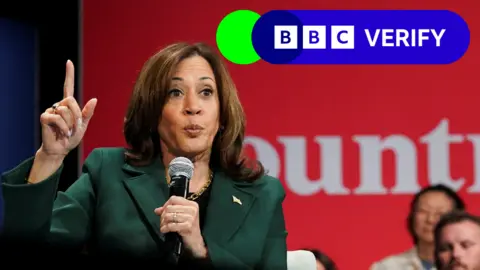 Reuters
Reuters
When Kamala Harris was asked on Wednesday what she would do to help an undecided voter worried about the price of groceries, she said she would introduce a national ban on price gouging.
Her plan, she told an audience in Pennsylvania, would “stop companies taking advantage of the desperation and need of the American consumer and jacking up prices without any consequences”.
The proposed ban - one of her key economic policies - would apply during "times of crisis".
But would it really bring down prices for consumers? And could it even prove potentially counterproductive?
The backdrop of rising prices
Rising prices have been a key concern for Americans in recent years and polls suggest a majority of Americans feel worse off than they did four years ago.
In April 2024, the share of Americans naming the high cost of living as the most important financial problem facing their family reached 41%, the highest since 2005.
Overall inflation peaked at 9.1% in the year to June 2022, rates not seen in four decades.
And food inflation peaked even higher, reaching 11.4% in the year to August 2022.
Both are now back below 3%, though average US food prices are still around 27% higher than at the end of 2019.
Inflation has been a global problem, but some economists argue that the economic stimulus policies of the Biden-Harris administration contributed to this spike in US prices, making inflation an issue on which she is keen to reassure voters.
There have also been claims that some corporate retailers took the coronavirus pandemic in 2020 - when supply chains were disrupted and people's lives and shopping habits severely impacted by lockdowns - as an opportunity to increase their prices and profit margins.
This phenomenon has been dubbed by some as “greedflation” and forms the economic justification for Harris’s price gouging ban.
Donald Trump has compared her plan to “communist price control” and “like something straight out of Venezuela or the Soviet Union.”
What is Harris's price gouging plan?
The Harris team has said the federal ban would apply to "essential goods during emergencies or times of crisis".
Thirty-seven US states already have laws which prohibit price gouging in the wake of local states of emergency, which can follow extreme weather events such as hurricanes or disasters such as wildfires.
They were also triggered in dozens of US states during the coronavirus pandemic.
We do not know how Harris’s nationwide controls would work, but when she was a senator in 2020, she co-sponsored legislation that would have defined price gouging in an emergency as charging more than 10% above the previous average price for an item.
It is assumed that Harris’s federal ban on price gouging would be like a nationwide version of the various state-level regimes.
On CNN, she was asked how her plan would help bring down grocery prices in general, given it would only apply during emergencies.
She did not respond directly, instead talking about companies "taking advantage of people" during the recent hurricanes and in the pandemic.
What is the economic evidence?
The argument over how much the overall spike in US prices in recent years can be attributed to price gouging is contested among economists.
Isabella Weber, an associate professor of economics at the University of Massachusetts, Amherst, has argued that there is compelling evidence of what she calls “seller’s inflation” in the US since 2020.
She cites the fact that total US corporate profits measured as a share of the overall US economy jumped between 2020 and 2022 - and, as an example, points to the case of the giant US meat processor, Tyson, which doubled its profit margins in the second half of 2021.
Tyson attributed the higher margins to increases in its productivity.
Weber wrote in August that “Harris is right about going after price gouging”.
However, many other economists argue that although there might be individual examples of such corporate behaviour, by far the largest driver of rising inflation since 2020 has been a simple shortage of goods relative to demand.
“Price gouging played little role in the US inflation issues over the past several years,” argues the consultancy Oxford Economics.

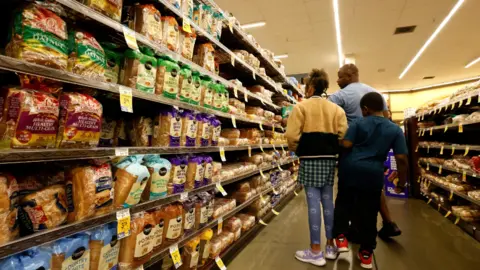 EPA
EPA
Moreover, economists are generally wary of government interference in prices set by businesses, even in times of crisis.
A common example used by critics is the case of a severe snowstorm in which local demand for new shovels shoots up and a local retailer increases prices in response.
The logic is that while such price hikes might seem unfair - and polling shows they are extremely unpopular - the higher prices induce other retailers to order more snow shovels from suppliers. This increases the supply and brings the price down again naturally, while ensuring as many people as possible get access to the shovels they need.
A study from 2007 suggested that if a federal price gouging law had been in place on gasoline sales after hurricanes Katrina and Rita in 2005, the economic damage would have been greater because of the discouragement for producers to increase their supply. The authors estimated that the overall economic damage would have increased by $1.5-3bn.
Economists generally prefer governments to focus their efforts to tackle price gouging, to the extent that it exists, through breaking up corporate monopolies and oligopolies (small groups of dominant sellers in a given market) and creating more free market competition, rather than directly controlling prices.
“Price gouging’s not the right way to think about it but price competition is and anything the government can do to facilitate that competition [I’m] all for it”, says Mark Zandi, the chief economist of Moody’s Analytics.
In 2012 a panel of eminent economists were asked whether they agreed that the US state of Connecticut was right to try to ban price gouging during severe weather events. Only 8% agreed.
And there are numerous examples from history where attempts by governments to control prices have backfired, resulting in shortages or inflation over the longer term.
The Soviet Union used price controls and the result was long queues in shops. The former president of Venezuela, Hugo Chavez, imposed price controls for food in 2003, contributing to chronic shortages and a huge rise in the undernourishment of the Venezuelan people.
However, it is a stretch to interpret Harris’ proposals, as laid out by her team, as a general lurch into a regime of price controls given the price gouging law would likely be limited to times of crisis and limited to food and groceries.
Capping drug prices
Another proposal from the Harris team is to lower prescription drug costs including by extending a “cap” on insulin drug prices to all Americans.
Insulin was capped at $35 (£27) a month for patients on Medicare - a federal insurance programme primarily designed to serve people aged 65 and over.
This is not a typical state price control, where the economic cost is borne by the retailer. Rather, the federal government, which runs the Medicare system, is responsible for reimbursing drug manufacturers for the difference between the $35 maximum price and the retail cost of the insulin.
However, applying the cap to all Americans would mean imposing the price restriction on private US health insurers, not just the public Medicare system. Unless pharmaceutical companies reduced their prices, this would mean those private insurance companies would need to cover the difference.
And some economists warn they might have to raise their premiums for everyone in the scheme as a result - so while certain drug prices would be lower, overall healthcare costs would be unchanged.
The same logic applies for Kamala Harris’ proposal to extend a $2,000 total annual cap on out-of-pocket costs for prescription drugs on Medicare to all Americans, including those in private health insurance schemes.



 6 months ago
27
6 months ago
27
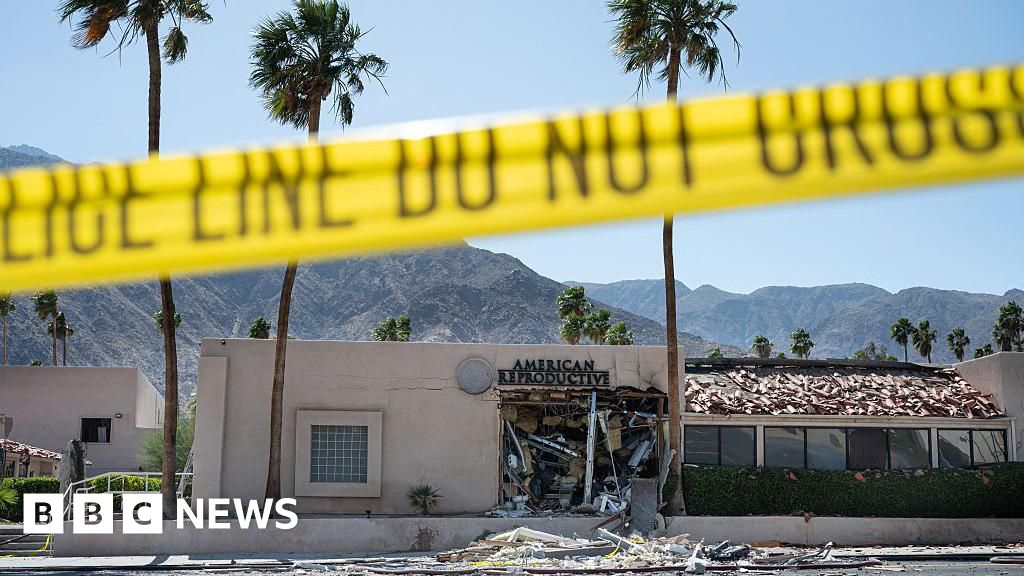
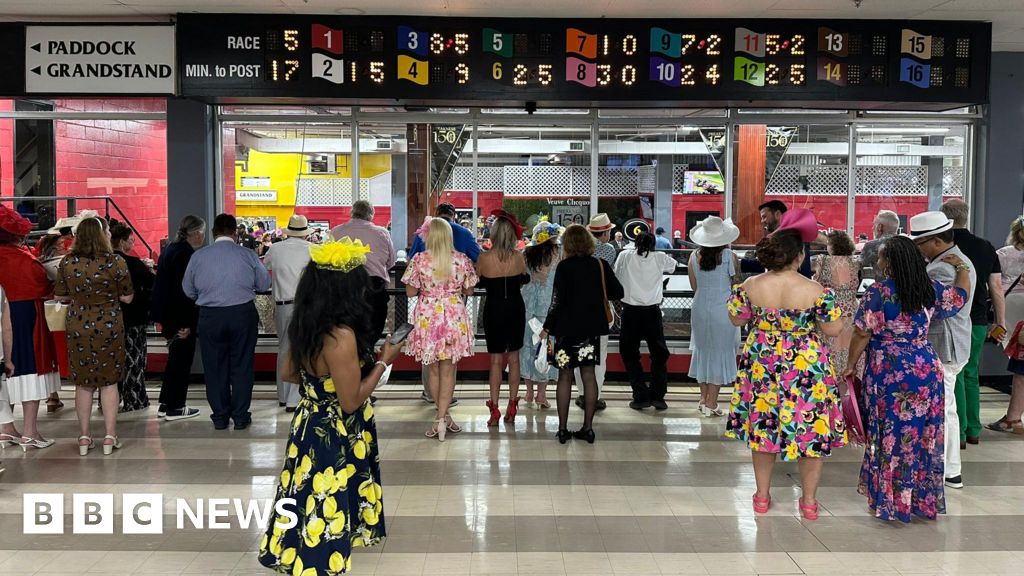
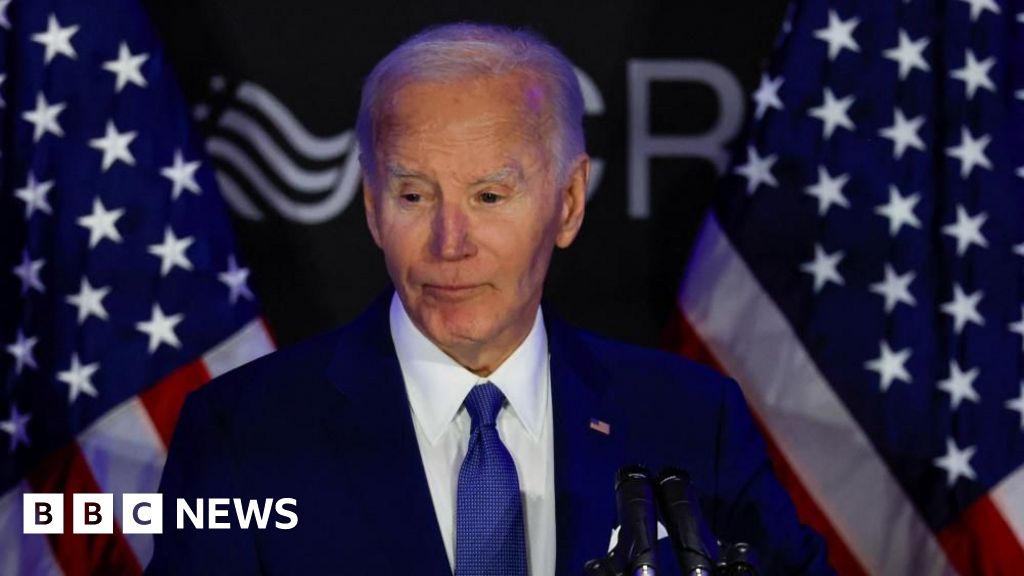





 English (US) ·
English (US) ·